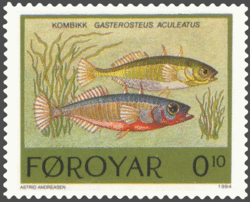Tag Archives: women
Male Fish Won’t “Ask For Directions”
Recent research has come to the astonishing conclusion that fish, specifically the males, positively refuse to ask for directions when they are breeding.
A recent research project, by the University of St. Andrews, has found that male fish seem to become more anti-social feeders, becoming even more so when they are ready to spawn.
As a result of this, they put themselves in greater peril, by leaving the shoal behind.
The claim is being made by researchers in charge of the project that this is one of the first studies performed that has shown a differences in the sexes when it comes to how animals learn from one another.
The current belief is that this trait is only seen in male fish when they are getting ready to spawn or are spawning, and may correlate to the distinct pressures faced by the sexes when spawning.
The research was conducted by Dr. Mike Webster and Professor Kevin Laland, whose goal was to take a look at the copying and learning behaviors of ninespine stickleback.
It appears the males tend to look for food reserves on their own, so that they can properly protect their young when the time comes, and this is why they don’t feed together.
Dr Webster added: “We are all familiar with the stereotype of males refusing to ask for directions – this might apply to fish too, but only when they are preparing to breed.”
Fish exposed to unnatural levels of oestrogen may become more susceptible to disease
Scientists from the U.S. Geological Survey (USGS) have revealed that largemouth bass injected with oestrogen produces less hepcidin than normally. Hepcidin is an important iron-regulating hormone in fish, amphibians and mammals, and researchers also suspect that hepcidin may act as an antimicrobial peptide. In vertebrate animals, antimicrobial peptides are the body’s first line of defence against unwelcome bacteria and some fungi and viruses, so if there’re right, a lowered amount of these compounds is certainly not good news.
“Our research suggests that estrogen-mimicking compounds may make fish more susceptible to disease by blocking production of hepcidin and other immune-related proteins that help protect fish against disease-causing bacteria,” says lead author Dr. Laura Robertson.
You can find more info in the study “Identification of centrarchid hepcidins and evidence that 17β-estradiol disrupts constitutive expression of hepcidin-1 and inducible expression of hepcidin-2 in largemouth bass (Micropterus salmoides)” by Laura Robertson, Luke Iwanowicz and Jamie Marie Marranca in the latest issue of the journal Fish & Shellfish Immunology. It is the first published study demonstrating control of hepcidin by estrogen in any animal.
